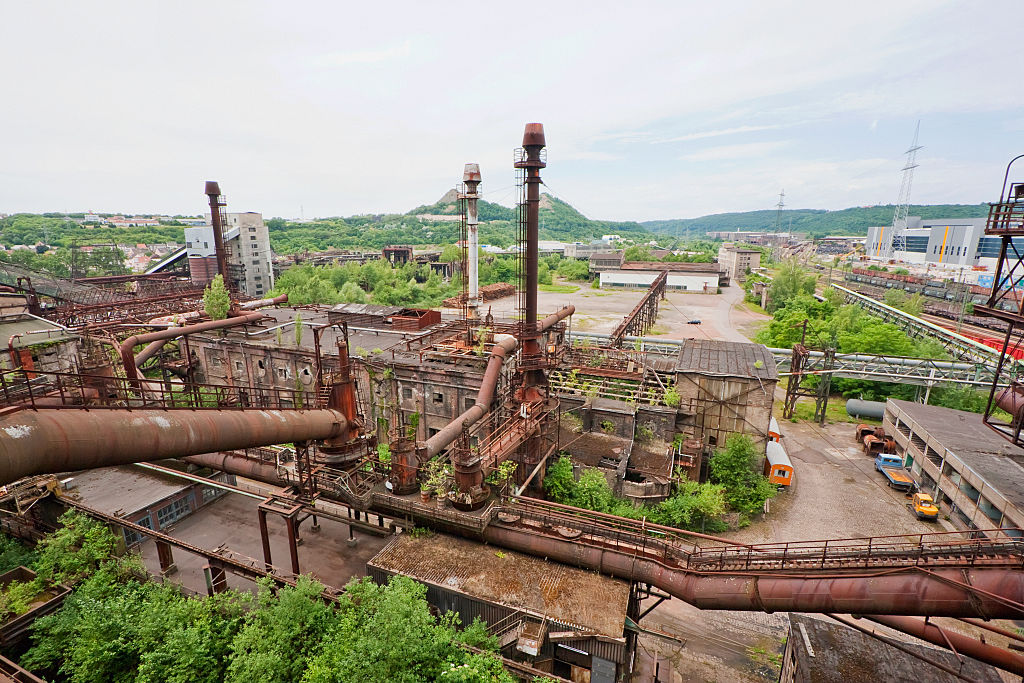For centuries Japan’s samurai relied on a practice called seppuku – suicide by disembowelment – as a remedy for failure. Europe’s virtue-signalling ritual has a more prosaic (if equally lethal) name: Regulation (EU) 2021/1119, also known as the European Climate Law.
Under the law, which was passed in 2021, the EU agreed to achieve climate neutrality by 2050. With that goal looking increasingly shaky, the Commission proposed a 2040 target to reduce greenhouse gas emissions by 90% by 2040.
“We took the time to think strategically about how we make this a success for Europe,” Climate Commissioner Wopke Hoekstra said on Wednesday as he presented the bill.
Unless the commissioner considers accelerating Europe’s deindustrialisation a “success,” he could not be more mistaken.
The Commission’s attempt to mandate more drastic cuts to emissions at a time when the region’s economy has come to a virtual standstill is nothing less than seppuku by another name.
Fortunately, Europe’s more sober capitals – Rome, Prague and Paris, among them – are pushing back on the Commission’s 2040 plan. The big question is what path Germany’s centre-right-led coalition, which is under intense pressure from the country’s Green lobby, will pursue.
Germany, which accounts for about one quarter of the EU’s output, has been stagnant for the better part of five years.
In the broader eurozone, the picture isn’t much better, with real growth near zero for more than two years, the weakest in decades. With the prospect of an even deeper slowdown amid a possible trade war with the U.S., there could hardly be a worse time to tighten the shackles on European industry.
Few European countries have the fiscal space to cope with the burden of steeper cuts to emissions. Of the eurozone’s 20 members, 11 are currently in violation of the bloc’s deficit rules, led by Romania with an eye-popping 9.3% budget deficit. The government’s attempts to rein in spending have already sparked unrest.
While manufacturing in Europe has declined by about 4% since 2015, the drop has been particularly pronounced in the region’s industrial core, Germany, where industrial production has contracted by nearly 10% as the pillars of the country’s economy – chemicals and autos – have begun to crack.
The crisis in Germany should serve as a warning to the rest of the bloc. Like the Commission, Germany’s political establishment argued for years that its ambitious climate policy (known in Germany as the Energiewende, or energy transformation) would serve as a model for the rest of the world.
Instead, Germany – which has seen heavy industry turn away from the country due in part to high energy costs – serves as an example of a failed climate policy. Though German emissions have fallen considerably, that “progress” has resulted in the erosion of its industrial base.
No one is denying the climate crisis. Yet a go-it-alone strategy won’t save the planet. It will only destroy what remains of the European economy and the unprecedented prosperity the continent has enjoyed in recent decades.
The samurai also had a word for that: kaishaku, the beheading.
May Europe’s cooler heads prevail.
Brussels races to avert Trump’s 50% tariff. The EU’s trade chief Maroš Šefčovič flew to the US for last-ditch talks with senior American officials, just days before Donald Trump’s 50% blanket levy on European goods is due to enter into force. He told reporters he would do his “utmost” to reach a deal with US counterparts during talks in Washington on Wednesday and Thursday. Read more.
Five fights that will shape the EU’s next budget. There is broad consensus that the EU needs a more agile budget but the bloc is a heavy machine – and always at risk of taking the path of least friction. Read more.
Why it’s obvious the EU will accept Trump’s 10% baseline tariff. Donald Trump’s tariff policy is widely – and rightly – lambasted for being confusing and contradictory. But journalists’ reporting on the topic is often equally baffling. Read more.
China slaps tariffs on EU brandy, exempts top Cognac brands. Anti-dumping tariffs of up to 34.9% will be imposed on brandy imports from the European Union for five years starting on 5 July, the Chinese Ministry of Commerce announced on Friday. Major Cognac producers who have already begun raising their prices will be exempt. Read more.
